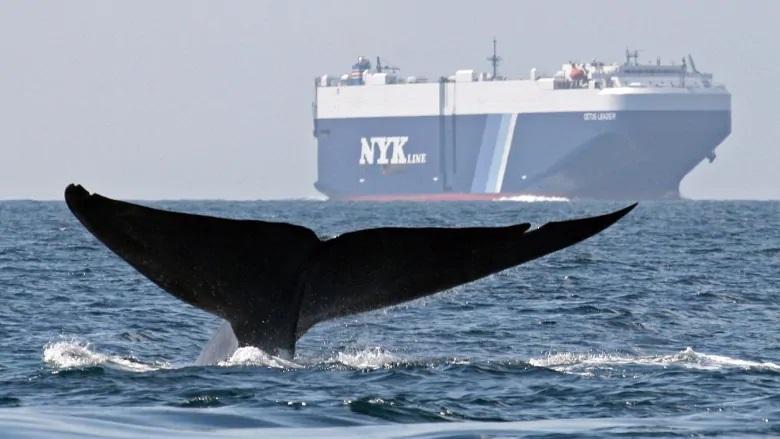A blue whale is shown near a cargo ship off the California coast. A new metastudy cites rumbling ships, hammering oil drills and booming seismic survey blasts as sounds that can deafen or disorient marine mammals.Photo:AP
By Patryk Krych | The World Daily | FEBRUARY 5th 2021
According to scientists, the brimming issue of noise pollution is causing a disturbance down beneath the surface of the oceans, as marine life struggles to continue with its typical habits of mating, feeding, and eluding predators.
There is “an overwhelming body of evidence” to suggest that human-generated noise is causing some severe disturbances to marine life. Scientists say that this includes any number of industrial practices, such as sonar, shipping, and general construction.
“We've degraded habitats and depleted marine species,” said Professor Carlos Duarte, who led the study into how noise pollution affects the habits and behaviour of marine species. “So, we've silenced the soundtrack of the healthy ocean and replaced it with the sound that we create.”
The study had been published in the Friday edition of the Science journal, and headed by Carlos Duarte, a marine scientist at King Abdullah University of Science and Technology in Saudi Arabia. The report detailed how sounds made above or near the surface of the water can be heard by whales, dolphins, and other species reliant on sound for navigation purposes – and how those sounds can even deafen the species in more extreme cases.
“It’s a chronic problem that certainly weakens the animals all the way from individuals to populations,” Duarte added, during an interview. “This is a growing problem, one that is global in scope.”
The study of marine life and how it communicates has been a hot topic for many decades among marine scientists, particularly when it comes to the communication of whales and the ‘whale songs.’ What was revealed was that fish often communicate in similar though quieter ways, and that due to noise pollution, the newly hatched fish are often left unable to hear the “call of home” like they once could.
One major point in the study had revealed an inclusive correlation had involved the lockdown that’d been initiated in 2020, due to complications with the COVID-19 pandemic. “Last year, when 60% of all humans were in lockdown, the level of human noise [in the ocean] reduced by about 20%,” said Duarte.
“That relatively modest reduction was enough for a wave of observations,” he added. “Large marine mammals - the easiest to observe - were seen near coastlines and in waterways that they'd not been seen in for generations.”
The study went on to say that noise pollution is an often-underrated issue that requires much more attention from policymakers and environmentalists than it currently seems to be receiving. The effects are clear on marine wildlife, but can also be observed to have an effect on sea birds and turtles as well, alongside walruses and manatees. Were noise pollution to be tackled sooner, the problem could be solved sooner as well.






